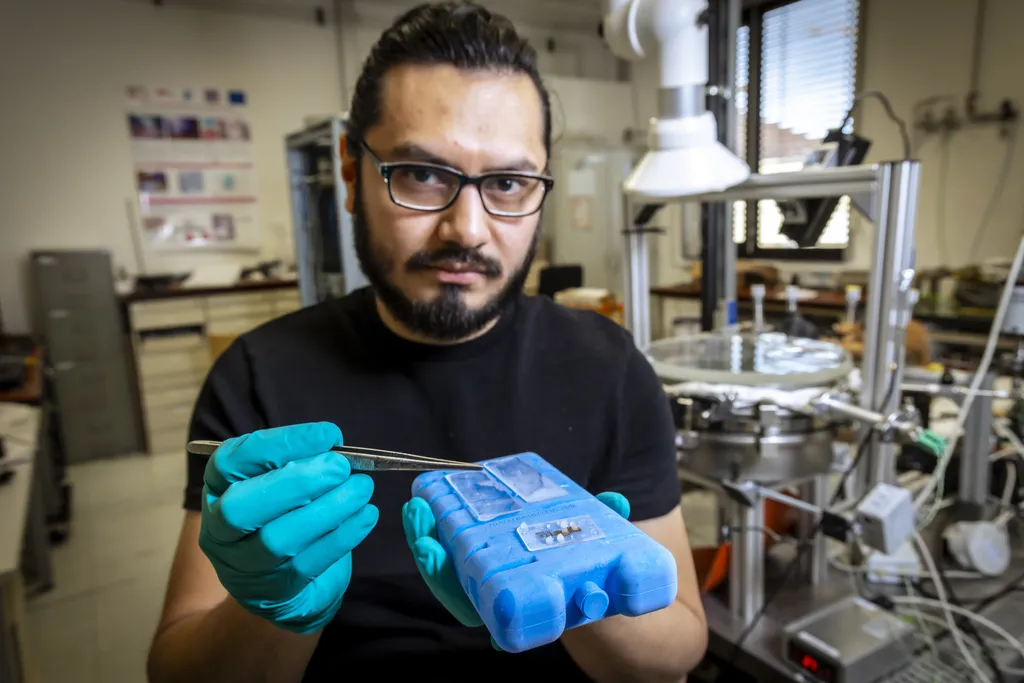In the world of advanced manufacturing, the devil is often in the details—tiny imperfections that can derail entire processes. For industries like energy, where precision is paramount, innovations that streamline production and enhance durability are always welcome. A recent study published in *Macromolecular Materials and Engineering* (which translates to *Macromolecular Materials and Engineering* in English) offers a promising breakthrough in this arena. Researchers at the NAWI Graz Institute of Solid State Physics at Graz University of Technology in Austria have developed a novel anti-sticking coating for imprint tools, a development that could have significant implications for the energy sector and beyond.
The study, led by Jasmin Pfleger, focuses on a branched perfluoro polyether acrylate monomer polymerized via initiated chemical vapor deposition (iCVD). This method produces thin, conformal polymer coatings with tunable cross-linking density, ensuring both mechanical and chemical stability. The coating is further anchored to the substrate via covalent bonds through a self-assembled monolayer, preventing delamination and extending the lifespan of expensive stamps.
One of the standout features of this coating is its ability to dramatically reduce surface energy. The researchers reported a water contact angle of 109° for the coated samples, a stark contrast to the 73° observed in uncoated, cleaned nickel samples. This represents a 73% reduction in water contact angle, a critical metric for anti-sticking performance. “The durability of the anti-sticking property is confirmed through long-term imprint tests, which is a game-changer for industries relying on precision molding,” Pfleger noted.
The implications for the energy sector are substantial. Imprint lithography is widely used in the production of microelectromechanical systems (MEMS) and other high-precision components, which are integral to renewable energy technologies like solar panels and advanced battery systems. A coating that enhances demolding efficiency and extends the life of expensive tools could lead to significant cost savings and improved production yields.
Beyond energy, the applications are vast. Semiconductor manufacturing, medical device fabrication, and even the automotive industry could benefit from this innovation. The ability to produce conformal coatings with low surface energy and high durability opens doors to more efficient and reliable manufacturing processes across multiple industries.
As Pfleger and her team continue to refine this technology, the potential for broader commercialization grows. The study’s findings, published in *Macromolecular Materials and Engineering*, underscore the importance of advanced materials science in driving industrial innovation. For professionals in the energy sector and beyond, this research offers a glimpse into a future where precision and durability are no longer at odds but are instead seamlessly integrated into the manufacturing process.

